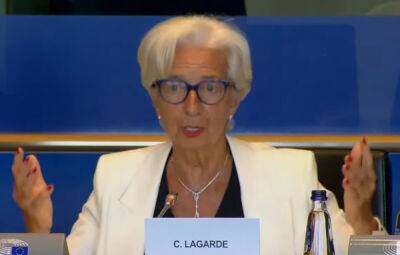Why is the ECB still fiddling over a potential eurozone crisis?
Perhaps the European Central Bank was feeling left out as the financial world turned its attention to the US Federal Reserve’s interest rate hike. But emergency meetings of major central banks are supposed to produce more substance than the weak offering that emerged from Frankfurt after a morning of contemplation: a plan to accelerate work on a “new anti-fragmentation instrument”.
The fragmentation in question is the widening of bond yields between eurozone countries. In short, as interest rate rises have come into view, weaker economies are having to pay meaningfully greater rates to borrow than the likes of Germany – about 2.4 percentage points more in the case of Italy.
Since the phenomenon, in more extreme form, represented a crisis for the eurozone that rumbled through the 2010s, it definitely needs to be addressed. Just as last time, however, expressions of good intentions are rarely enough. Investors always want to see the details of how intervention would work, and see the size of bazooka.
The only conclusion to be drawn from Wednesday’s statement is that the ECB is still fiddling, which is surprising in one sense. Two months ago Christine Lagarde, the ECB president, said the bank was on the job. “If and when it becomes necessary, we will know what to do and [the tool] will be operational promptly,” she said after a meeting of the bank’s governing council in April.
So why the delay? Is it purely a matter of design, as the statement suggested? It seems more likely that the ECB is worried about potential challenges in German courts, which have tended to take an interest in the ECB’s role as buyer of sovereign debt. Or perhaps there is haggling behind the scenes over any demands to be made of the Italian government, or
Read more on theguardian.com





















